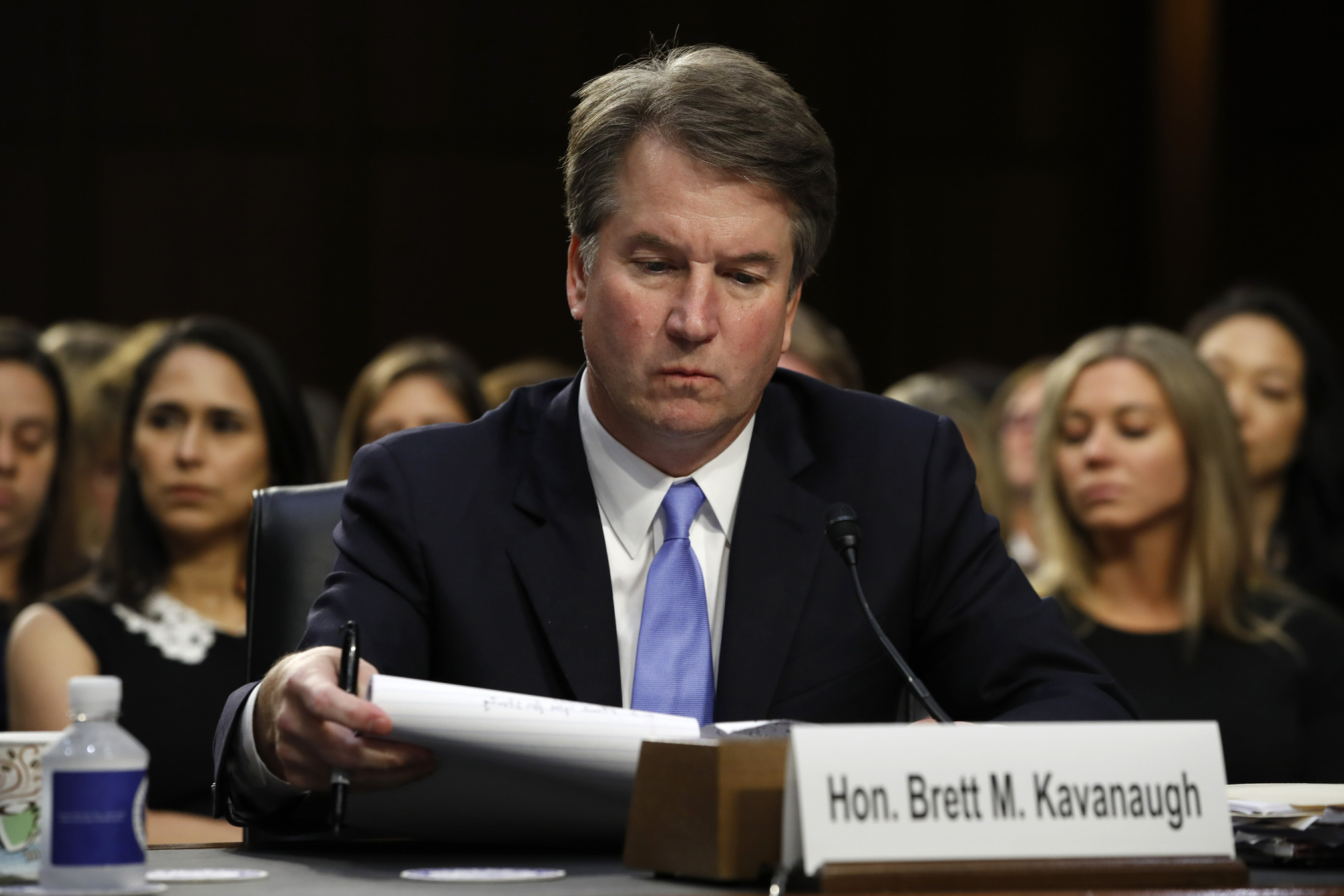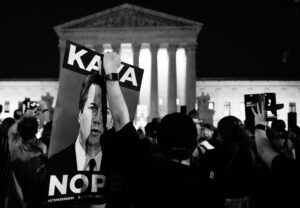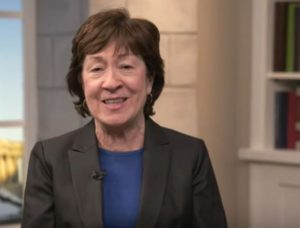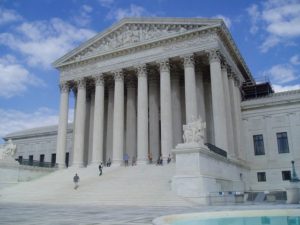The Case That Kavanaugh Is Lying Through His Teeth
An editor's close analysis of the often contradictory testimonies given last week can help you make sense of it all. Brett Kavanaugh at his confirmation hearings. (Jacquelyn Martin / AP)
Brett Kavanaugh at his confirmation hearings. (Jacquelyn Martin / AP)
Democratic members of the Senate Judiciary Committee spent hours Thursday attempting to coax straight answers out of Supreme Court nominee Brett Kavanaugh on his alcohol consumption and allegations he had engaged in sexual misconduct—as Kavanaugh shouted, deflected and repeatedly declared his love for beer. Despite inconsistencies in his story, the Democrats focused more on procedural issues and the need for an FBI investigation than on pressing him about his answers.
Nathan J. Robinson, in an analysis for Current Affairs, did what many of those senators could not—he combed through Kavanaugh’s and Christine Blasey Ford’s testimonies and, he said, found lies in the judge’s statements. The analysis by Robinson, who has a law degree, is remarkable not only for its legal insight but because he paid close attention to what Kavanaugh said, compared with his supposedly corroborating evidence and the evidence of his accuser.
Robinson, the editor of Current Affairs, addresses the idea that this situation is just a case of “he said, she said”: “The existence of a ‘he said, she said’ does not mean it’s impossible to figure out the truth,” he explains. “It means we have to examine what he said, and what she said, as closely as possible.”
Fighting back against commentators who throw up their hands and sigh about how both Dr. Ford and Kavanaugh are convincing, Robinson reminds us of this:
If both parties speak with passion and clarity, but one of them says many inconsistent, evasive, irrational, and false things, while the other does not, then we actually have a very good indicator of which party is telling the truth. If a man claims to be innocent, but does things—like carefully manipulate words to avoid giving clear answers, or lie about the evidence—that you probably wouldn’t do if you were innocent, then testimony alone can substantially change our confidence in who to believe.
Robinson says that one of the most blatant lies is related to the calendars Kavanaugh kept of his school years. The nominee claims, “The calendars show a few weekday gatherings at friends’ houses after a workout or just to meet up and have some beers.”
That’s the kind of gathering Dr. Ford describes in her account of her assault:
After a day of diving at the club, I attended a small gathering at a house in the Bethesda area. There were four boys I remember specifically being there: Brett Kavanaugh, Mark Judge, a boy named P.J., and one other boy whose name I cannot recall. I also remember my friend Leland attending. I do not remember all of the details of how that gathering came together, but like many that summer, it was almost surely a spur-of-the-moment gathering. … People were drinking beer in a small living room/family room-type area on the first floor of the house.
Robinson points out that Kavanaugh “says that he never attended a gathering like this, but that’s obviously false because the type of gathering he says he did attend is exactly the kind she describes.”
There are multiple instances when Kavanaugh claims something that obviously cannot be true, Robinson writes.
Robinson explains how Kavanaugh doubles down on the idea that all the people Ford names as witnesses said the attack on Ford “didn’t happen.” There is a difference between “didn’t happen” and, as Kavanaugh’s friend Mark Judge says, “don’t recall,” Robinson points out. Kavanaugh also cites the statement of P.J., who wrote: “I am issuing this statement today to make it clear to all involved that I have no knowledge of the party in question; nor do I have any knowledge of the allegations of improper conduct she [Dr. Ford] has leveled against Brett Kavanaugh.”
Not so fast, says Robinson:
Kavanaugh says P.J. denied that the event happened. That’s not what the statement says. Kavanaugh is a federal judge, a real smart cookie. I hope he knows the difference between the absence of an awareness of an event and an awareness of the absence of an event.
This may seem trivial but it isn’t, Robinson explains, in the case of someone being considered for a lifetime appointment to the highest court in the land.
Robinson also combs through Kavanaugh’s roommates’ accounts of his binge drinking, contrasting that with Kavanaugh’s vigorous denials, his unwillingness to answer senators’ questions directly and frequently answering questions with questions.
Robinson presents a thorough, detailed and clear analysis of a drama that has riveted the nation. The piece is long but written in accessible language with straightforward examples. Read it here.
Your support matters…Independent journalism is under threat and overshadowed by heavily funded mainstream media.
You can help level the playing field. Become a member.
Your tax-deductible contribution keeps us digging beneath the headlines to give you thought-provoking, investigative reporting and analysis that unearths what's really happening- without compromise.
Give today to support our courageous, independent journalists.









You need to be a supporter to comment.
There are currently no responses to this article.
Be the first to respond.